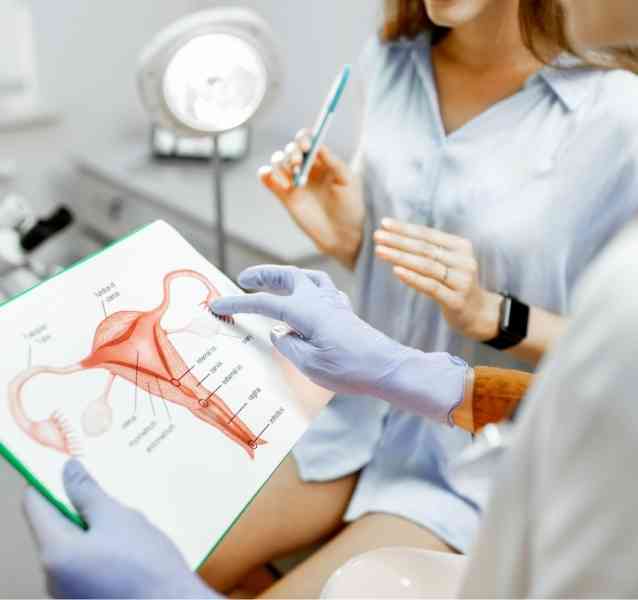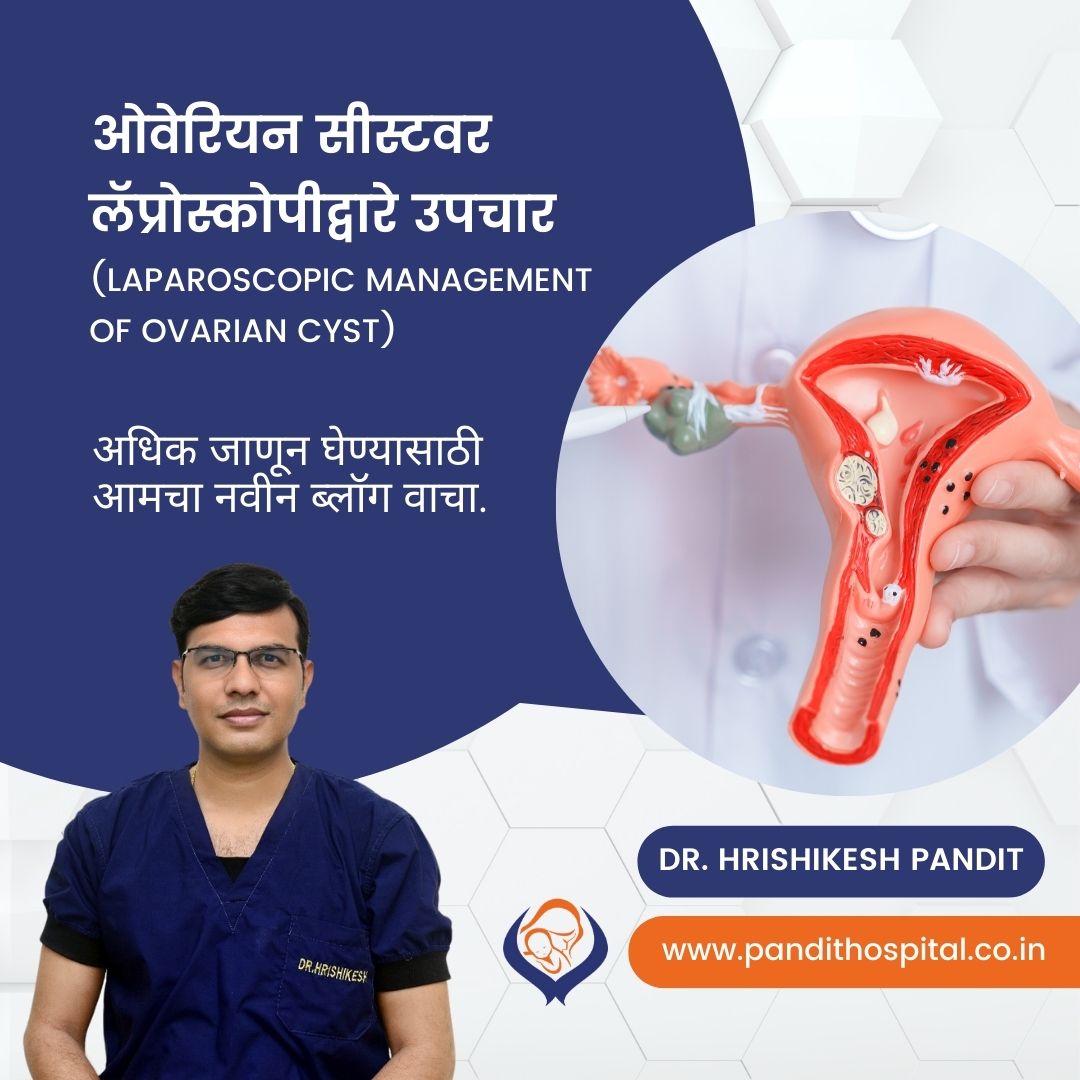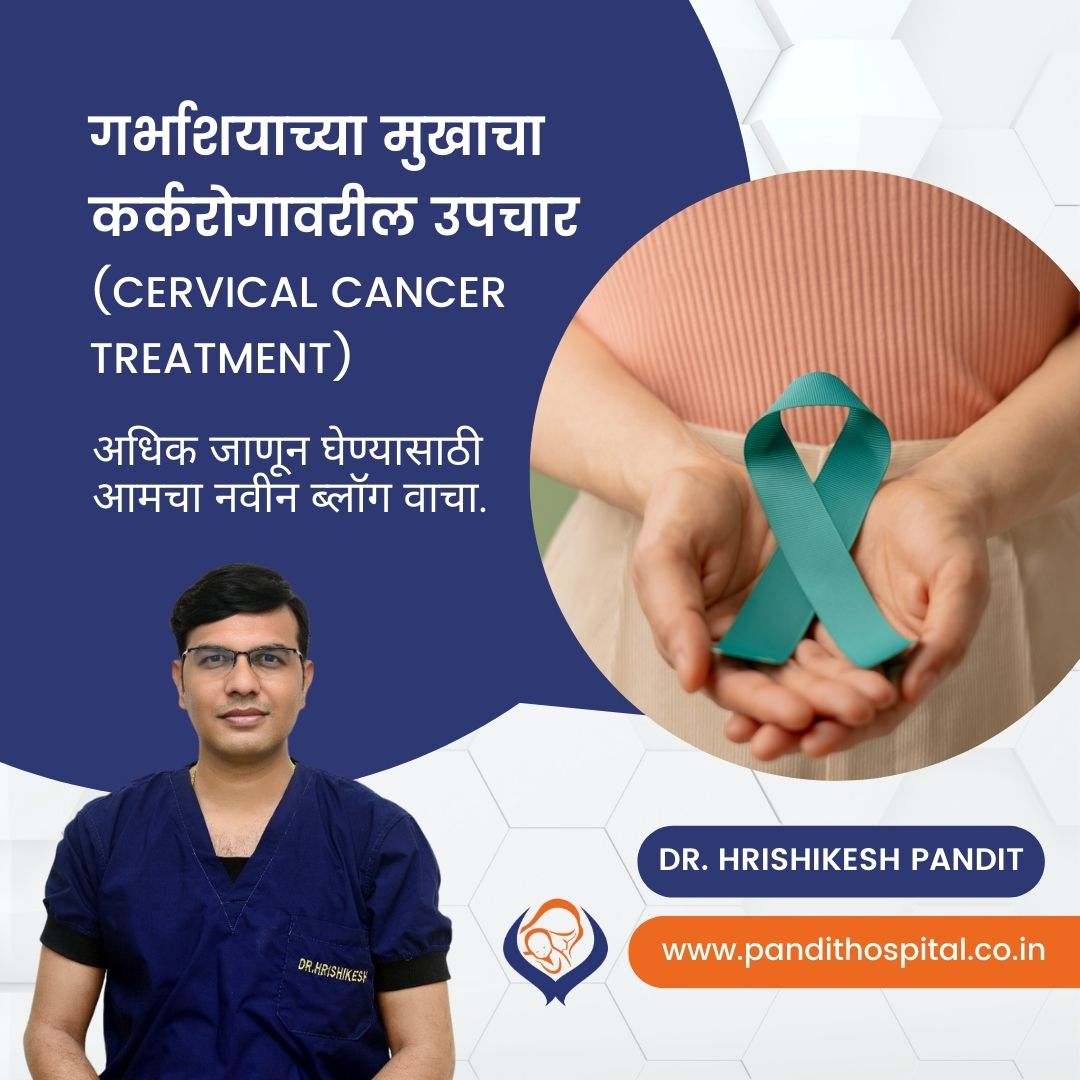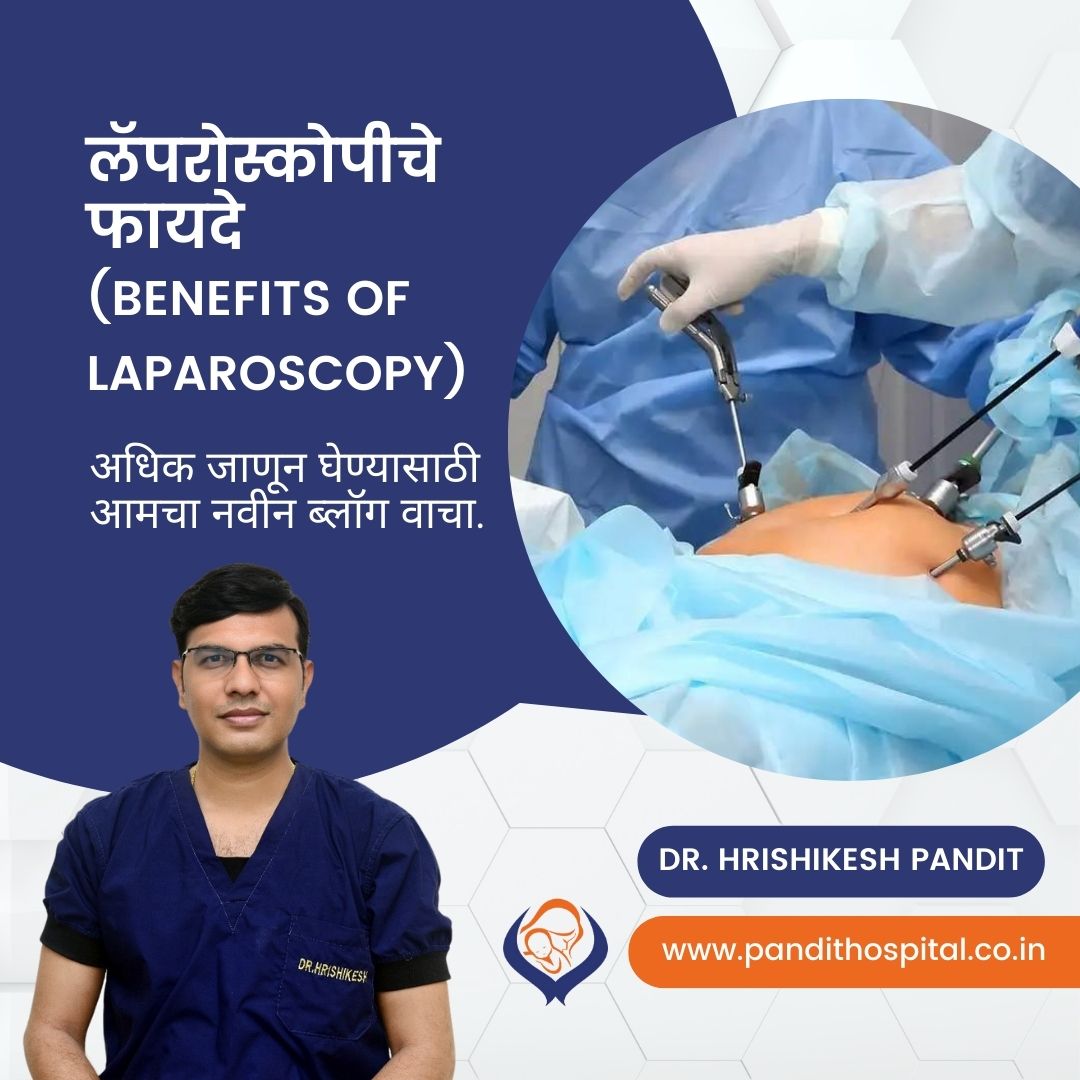GYNECOLOGY


Best Gynecologist in Ahmednagar
At “Pandit Hospital”, we provide both medical management & surgical intervention for all gynecological disorders. Dr. Hrishikesh Pandit, is the best gynecologist in Ahmednagar. He has been trained at various renowned centers for laparoscopic and endoscopic surgeries. You are in safe hands when it comes to any gynecological issues.
To consult Dr. Hrishikesh Pandit, Click Below,
Your search for best gynecologist near me ends here!
Many women suffer from gynecological problems in their lifespan. It can be during child bearing age (15 to 45 years) or after the menopause.
Following conditions require medical intervention and management:
- PCOD (Polycystic ovarian disease)
- Menstrual Disorders
- Endometriosis
- Uterine Fibroids
- Gynecological Endocrinal Disorders which require hormonal therapies

Dr. Hrishikesh Pandit : Best Gynecologist in Ahmednagar
Read Blogs Related To Gynecology
Discover comprehensive ovarian cyst treatments at Pandit Hospital in Ahmednagar, Maharashtra, led by 3D Laparoscopic Surgeon Dr. Hrishikesh Pandit. Learn about types, symptoms, and both surgical and non-surgical treatments. Best ovarian cyst removal hospital in India.
गर्भाशयाच्या मुखाचा कर्करोग हा महिलांमध्ये होणारा दुसरा सर्वात गंभीर कॅन्सर आहे. वयाच्या 35 व्या वर्षानंतर या आजाराचा धोका फार वाढतो. गर्भाशयाच्या कर्करोगावर लॅपरोस्कोपी (दुर्बिणीने) शस्त्रक्रियेद्वारे उपचार केले जाऊ शकतात.
लॅपरोस्कोपिक शस्त्रक्रियेचे अनेक फायदे आहेत ✔ कमी वेदना ✔ कमी रक्तस्त्राव ✔ रुग्णालयात किमान मुक्काम ✔ जलद रिकव्हरी ✔ कमी कॉम्प्लिकेशन्स ✔ कमी टाके ✔अंतर्गत अवयवांना कमी इजा. Benefits of laparoscopy &Marathi)
FAQ
You should consult a doctor during the first 6 to 8 weeks of your pregnancy, or when your period is 2 to 4 weeks late.
If your contractions are 5 minutes apart, lasting for 1 minute, for 1 hour or longer, it’s time to head to the hospital.
Doctors recommend an infertility evaluation if you have not gotten pregnant after 1 year of having regular sexual intercourse without using birth control. If you are older than 35, an evaluation is recommended after 6 months of trying.
Yes, You can. But most babies need 39 weeks to develop fully. Induced or planned delivery before that time—without a valid medical reason—is not in the best interest of the baby or the mother. After 39 weeks you can plan delivery.
Women who are 21 to 29 should have a Pap test alone every 3 years. HPV testing alone can be considered for women who are 25 to 29, but Pap tests are preferred. Women who are 30 to 65 have three options for testing. They can have a Pap test and an HPV test (co-testing) every 5 years. They can have a Pap test alone every 3 years. Or they can have HPV testing alone every 5 years.
Laparoscopic hysterectomy is a safe and suitable procedure for chosen patients. It affords patients advantages like less peri-operative morbidity, better life quality, shorter hospitalization time, and faster return to activity.
Schedule a doctor’s visit if you have: Greenish, yellowish, thick or cheesy vaginal discharge; Strong vaginal odor; Redness, itching, burning or irritation of your vagina or the area of skin that surrounds the vagina and urethra (vulva); Bleeding or spotting unrelated to your period.
Painless delivery can be achieved using a form of regional anesthesia that provides pain relief during natural labor. Epidural anesthesia is administered through an injection on the lower back of the mother. The drug takes about 10-15 minutes to take effect.
Even in severe cases of endometriosis, most can be treated with laparoscopic surgery. In laparoscopic surgery, your surgeon inserts a slender viewing instrument (laparoscope) through a small incision near your navel and inserts instruments to remove endometrial tissue through another small incision.
The HPV vaccine is recommended for routine vaccination at the age of 11 or 12 years. (Vaccination can be started at age 9.) It is also recommended that vaccination for everyone through age 26 years if not adequately vaccinated when younger. HPV vaccination is given as a series of either two or three doses, depending on age at initial vaccination.



